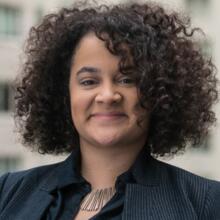“Leave out the women, and you don’t have a full and robust economy. Lead with the women, and you do.” These are the opening words of the report by Maria Shriver and the Center for American Progress, titled “The Shriver Report: A Woman’s Nation Pushes Back from the Brink.” The report, released on Jan. 12—coinciding with the 50th anniversary of President Lyndon B. Johnson's speech on poverty—presents the current epidemic of economic insecurity as experienced by American women. In 2014, over 100 million U.S. citizens live at or near the poverty line, and women make up 40 percent of this group. Incorporating the views of a diverse cast of commentators—LeBron James on single mothers, Sister Joan Chittister on religion and Beyoncé Knowles-Carter on gender inequality—the report attempts to explain how the conversation surrounding poverty has changed and why women should be at the center of it.
On Jan. 8, 1964, President Johnson delivered his State of the Union Address to Congress. He called poverty “a national problem” and stated that the government must do everything in its power to guarantee every family has its basic needs met. Mr. Johnson stated: “[T]he war against poverty will not be won here in Washington. It must be won in the field, in every private home, in every public office, from the courthouse to the White House.” The social welfare agenda introduced by the Johnson administration—with the help of Maria Shriver’s father, Robert Sargent Shriver, Jr.—effectively reduced poverty by more than 40 percent over 10 years through initiatives such as Head Start, Legal Services for the Poor and Job Corps.
Fifty years later, however, the “poor children in Appalachian shacks and inner-city alleys,” once described by Mr. Johnson, are no longer the only face of poverty. Working women are now at the center of the poverty epidemic. This is because, according to the Shriver Report, economic disparity and social immobility have a larger impact on working-class women. The number of women working in minimum wage jobs has steadily risen and they now make up 60 percent of minimum wage workers.
Another factor working against women who live in poverty is their level of education. Since the 1960s, college enrollment among women has risen by over 17 percent. Despite this increase, higher education is not a realistic goal for many women. Because of their economic circumstances, working-class women cannot prioritize education and “are more likely to work in poorly paid…service and caregiving occupations that leave them financially insecure.”
A final factor preventing women from breaking out of the cycle of poverty is the wage gap. Despite the impressive advancements in the workforce, American women continue to make significantly less than men. The report describes how the expansion of the U.S. economy in the middle of the 20th century allowed the middle class to rise and wages to increase. In 2014, however, with an economy struggling to combat persistently high unemployment numbers, women are not only often being left behind, but when they manage to move out of minimum wage sectors, they still make less than men in similar positions.
The Shriver Report provides a variety of ways to bring down the barriers that prevent working-class women from achieving economic security. With a higher minimum wage, improved access to income support and better opportunities to access both education and high-income jobs, we can begin to improve the lives of working-class women and help them to move away from the brink of poverty.
The government has an important role to play in the building up of an economy in which the equal dignity of women is upheld. During his recent State of the Union Address, President Barack Obama reaffirmed his commitment to eliminating gender inequality, stating, “Women deserve equal pay for equal work.” Let us hope Mr. Obama continues to strive toward this goal. As we anticipate his meeting with Pope Francis this coming March, let us also remember the church’s call for solidarity. We must remember, as Pope Francis states, “each individual Christian and every community is called to be an instrument of God for the liberation and promotion of the poor.”








